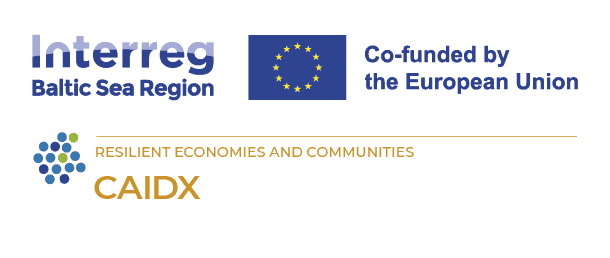Will the EU’s new AI Act lead to greater demand for AI solutions?

The new AI regulation from the EU is in the pipeline. But what does it mean for companies developing AI solutions for healthcare? The AI regulation will create better safety and thus greater demand for AI solutions – but it will also place higher demands on companies, according to two international experts.
The European Parliament has approved the Artificial Intelligence Act, the EU’s regulation on artificial intelligence. It is expected to have a major impact on companies and organizations working with AI systems in the EU market.
The new regulation aims to strike a balance between innovation and ethical considerations. In addition, it will establish harmonized standards for AI systems across EU Member States.
But what impact will the new regulation have on the market in health?
“It is probably clear that we will see an increase in the regulatory burden. The cost of doing business and the uncertainty of the legal landscape will increase, according to Sandra Liede, Senior Legal Specialist, Healthtech Finland.
Strict requirements can become an advantage for AI as a tool
“I fear that the new requirements will make it harder to attract AI startups to Europe in the future. But at the same time, the regulation will hopefully have positive consequences for companies that develop AI solutions, because they will be rubber-stamped by the security requirements that are tightly regulated by the EU, says Dr. Oliver Eidel, openregulatory.com.
Sandra Liede and Dr. Oliver Eidel were both speakers when Danish Life Science Cluster hosted the webinar ‘The coming AI legislation – will change everything… or will everything change?’
The webinar was part of a series of four in the project CAIDX – Clinical AI-based Diagnostics. See links to the webinars at the bottom of the page.
Parallel to MDR and IVDR
The overall goal of the EU AI Regulation is to promote responsible AI development and implementation. In addition, it must seek to protect fundamental human rights and environmental sustainability from high-risk AI.
The final text of the regulation has not been finalized, but the assumption from the two experts is that the AI regulation will complement an already heavily regulated area.
It is likely to be parallel to the MDR, the Medical Device Regulation, which is a set of rules regulating the production and distribution of medical devices in Europe, and IVDR, the In Vitro Diagnostic Regulation, which aims to ensure effective diagnostic tests on the European market.
Need understanding of the huge task
One of Sandra Liede’s concerns is that there is a fear that there is not enough understanding at the EU level of what it takes to implement such a large piece of regulation as the AI regulation, which is even larger than the MDR.
– There is a need for a considerable amount of harmonization in areas such as technical standards, guidelines, contractual terms, and templates. In addition, there is a need for access to high-quality datasets, possibly a collaboration with European Health Data Space. And not least, it will be necessary to simplify compliances for companies, Sandra Liedes points out.
Class 1 will be exempt
Dr. Oliver Eidel, who among other things makes his living advising companies on MDR and IVDR, is also looking forward to the new regulation with some excitement.
“We have no data showing that the proposed rules lead to higher safety, so we will not really know the effect until several years into the future.”
He therefore believes that it is still unknown what the AI regulation will mean for companies that produce medical devices.
However, the adviser is reasonably certain of one thing. The upcoming AI regulation will hardly affect solutions classified as class 1 medical devices, because those are not classified as high-risk AI; only medical devices of class IIa and higher will be classified as high-risk AI solutions (if they contain AI), because they currently already require an audit by a Notified Body, says Dr. Oliver Eidel.
National authority to be designated
We are now awaiting the publication of the final text of the European Artificial Intelligence Act, after which there may be national adjustments. In addition, it must be decided which authority will be responsible for supervising the rules in Denmark.
Read more: CAIDX – Clinical AI-based Diagnostics
Watch the webinars held under the auspices of CAIDX.
- CAIDX webinar: IPR in relation to AI and the use of patient data
- CAIDX webinar: The coming AI legislation will change everything… or will everything change?
- CAIDX webinar: Clinical validation of AI diagnostics solutions.
Next CAIDX webinar: Where can you find professional sparring when developing AI
diagnostic solutions for the healthcare sector? will be held on April 22, 2024, from 1-2 p.m.
CAIDX is co-funded by the European Union.

